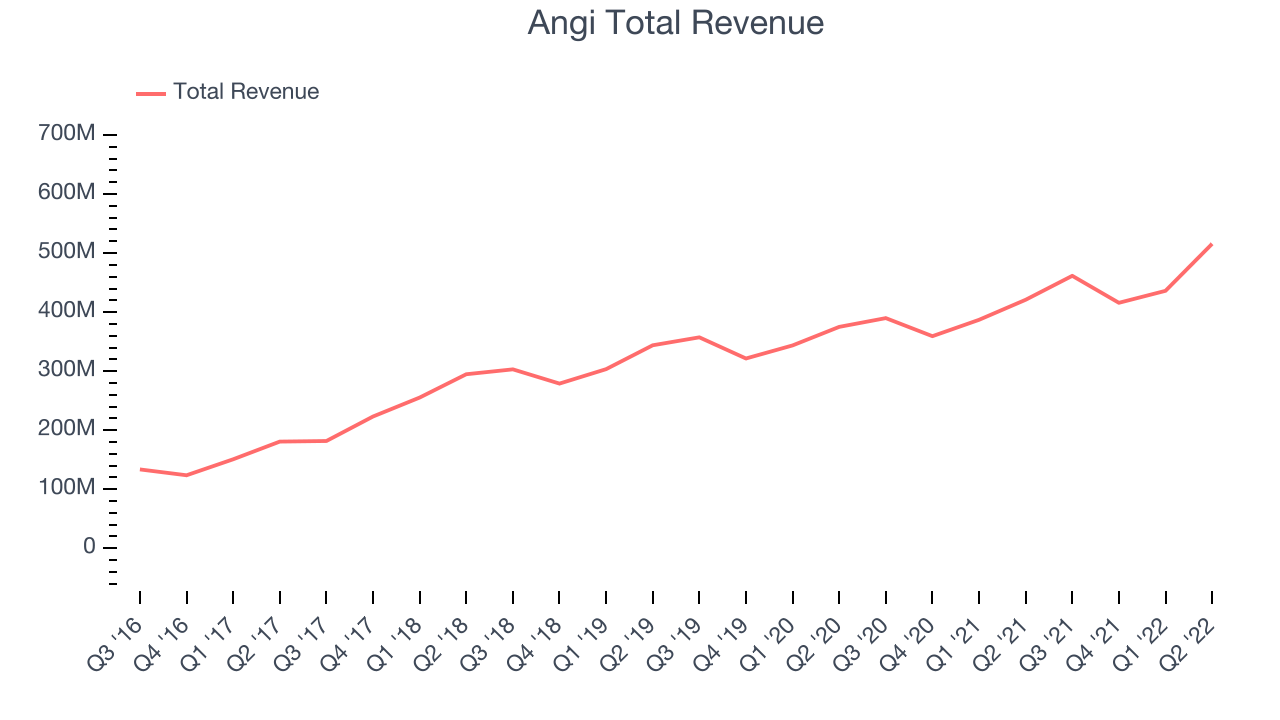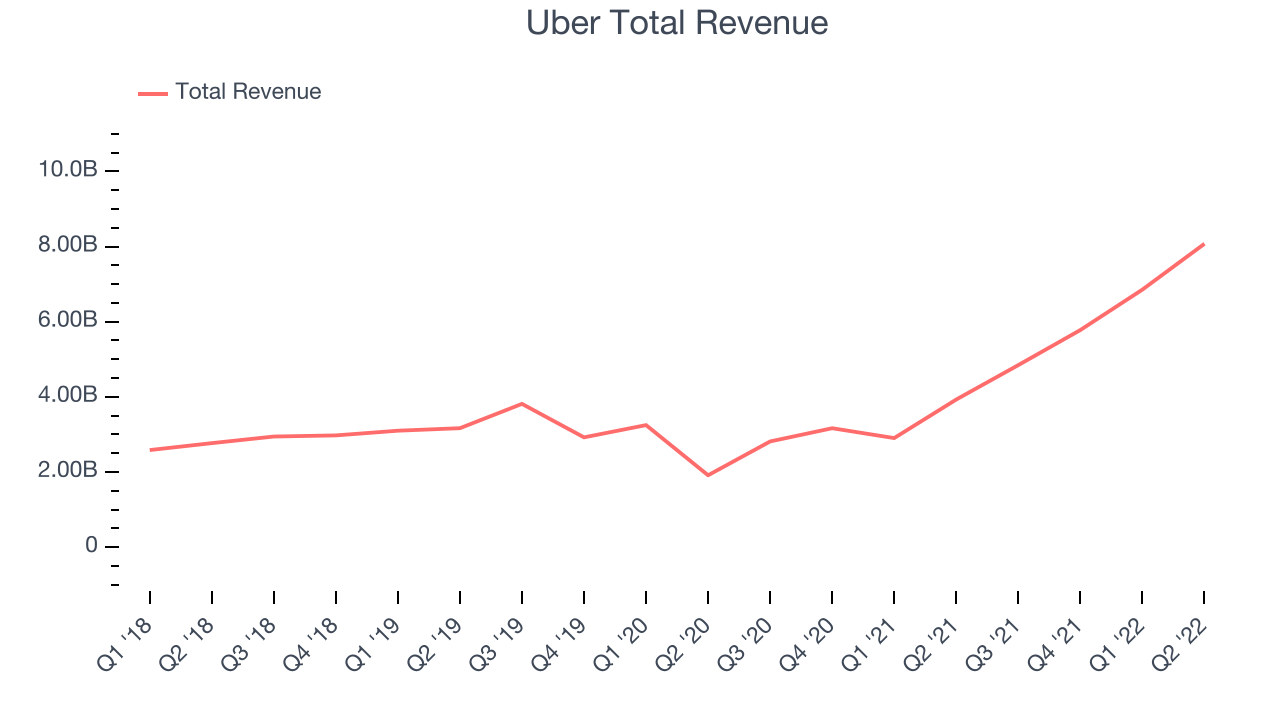The end of the earnings season is always a good time to take a step back and see who shined (and who not so much). Let’s have a look at how the gig economy stocks have fared in Q2, starting with Angi (NASDAQ:ANGI).
The iPhone changed the world, ushering in the era of the “always-on” internet and “on-demand” services - anything someone could want is just a few taps away. Likewise, the gig economy sprang up in a similar fashion, with a proliferation of tech-enabled freelance labor marketplaces, which work hand and hand with many on demand services. Individuals can now work on demand too. What began with tech enabled platforms that aggregated riders and drivers has expanded over the past decade to include food delivery, groceries, and now even a plumber or graphic designer are all just a few taps away.
The 4 gig economy stocks we track reported a mixed Q2; on average, revenues beat analyst consensus estimates by 3%, while on average next quarter revenue guidance was 6.8% under consensus. There has been a stampede out of high valuation technology stocks as raising interest rates encourage investors to value profits over growth again and gig economy stocks have not been spared, with share prices down 15.7% since the previous earnings results, on average.
Angi (NASDAQ:ANGI)
Created by IAC’s mergers of Angie’s List and HomeAdvisor, ANGI (NASDAQ: ANGI) operates the largest online marketplace for home services in the US.
Angi reported revenues of $515.7 million, up 22.5% year on year, beating analyst expectations by 4.11%. It was a slower quarter for the company, with declining number of users.

The company reported 8.49 million service requests, down 9.78% year on year. The stock is down 48.6% since the results and currently trades at $3.15.
Read our full report on Angi here, it's free.
Best Q2: Uber (NYSE:UBER)
Born out of a winter night thought: "What if you could request a ride from your phone?" Uber (NYSE: UBER) operates a global network of on demand services, most prominently ride hailing and food delivery, and freight.
Uber reported revenues of $8.07 billion, up 105% year on year, beating analyst expectations by 9.48%. It was a very strong quarter for the company, with an exceptional revenue growth and an impressive beat of analyst estimates.

Uber pulled off the strongest analyst estimates beat and fastest revenue growth among its peers. The company reported 122 million paying users, up 20.7% year on year. The stock is up 19.8% since the results and currently trades at $29.48.
Is now the time to buy Uber? Access our full analysis of the earnings results here, it's free.
Slowest Q2: Fiverr (NYSE:FVRR)
Based in Tel Aviv, Fiverr (NYSE: FVRR) operates a fixed price global freelance marketplace for digital services.
Fiverr reported revenues of $85 million, up 12.9% year on year, missing analyst expectations by 1.85%. It was a weak quarter for the company, with revenue guidance for both the next quarter and full year missing analysts' expectations.
Fiverr had the weakest performance against analyst estimates and slowest revenue growth in the group. The company reported 4.2 million active buyers, up 5% year on year. The stock is down 12.4% since the results and currently trades at $32.44.
Read our full analysis of Fiverr's results here.
Lyft (NASDAQ:LYFT)
Founded by Logan Green and John Zimmer as a long-distance intercity carpooling company Zimride, Lyft (NASDAQ: LYFT) operates a ridesharing network in the US and Canada.
Lyft reported revenues of $990.7 million, up 29.5% year on year, in line with analyst expectations. It was a solid quarter for the company, with a strong top line growth.
The company reported 19.8 million paying users, up 15.8% year on year. The stock is down 21.9% since the results and currently trades at $13.60.
Read our full, actionable report on Lyft here, it's free.
The author has no position in any of the stocks mentioned
